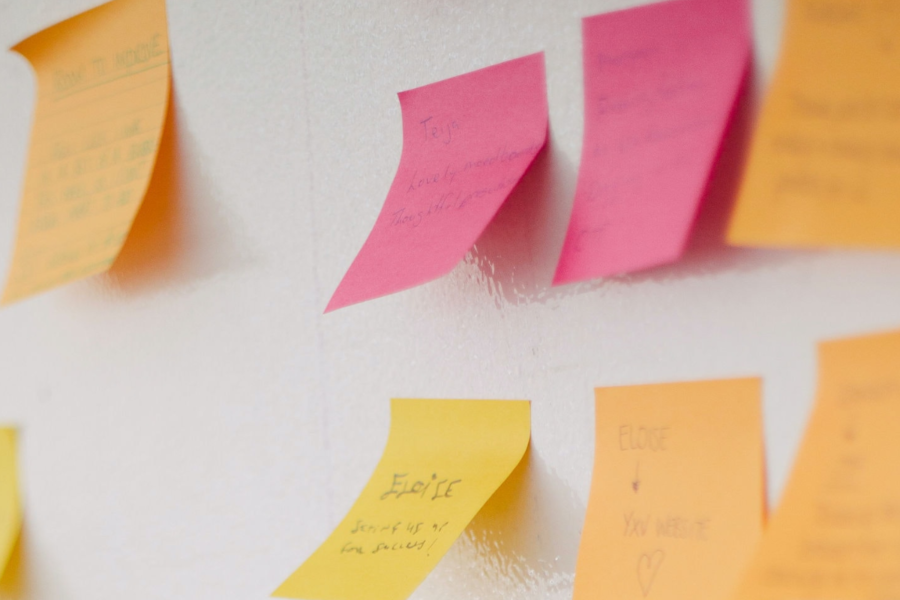Jo VanEvery, Academic Career Guide · Don’t aim to finish articles in the summer I was talking to a client about her summer plans. She wants to ‘get a lot of stuff written this summer‘. She has lots of data. She wants to apply for a grant in about 18 months time. And heck, she […]
Read More »When you start to hate what you loved.
Jo VanEvery, Academic Career Guide · When you start to hate what you love You started on your academic path because you loved your work. You were excited and interested in a particular area of scholarship. But somewhere along the line you lost that connection, temporarily or permanently. It may have started to feel like […]
Read More »Planning your summer writing time
Jo VanEvery, Academic Career Guide · Planning Your Summer Writing Time Here’s an idea for your summer writing: schedule your time as writing retreats. Summer time is different than teaching terms. You have much more freedom about how you schedule your work: For most of you, there are no classes. There are also fewer meetings […]
Read More »Getting out of Grading Jail*
Jo VanEvery, Academic Career Guide · Getting out of grading jail *the term “grading jail” is borrowed from a popular Twitter hashtag #gradingjail At this time of year, it is tempting to drop everything else and just grade all the time. After all, you have lots of grading. You might as well get through it […]
Read More »Why questions are useful in feedback
Jo VanEvery, Academic Career Guide · Why questions are useful in feedback As I was preparing the first iteration of my class on Dealing With Reviewer Comments, I asked some friends and colleagues to recommend resources for dealing with feedback. That’s how I discovered Liz Lerman’s Critical Response Process. Lerman developed this process for artists, […]
Read More »Your vision guides the writing and the revision
Jo VanEvery, Academic Career Guide · Your vision guides the writing and the revision You’ve worked really hard on this article. The subject is important to you. You have something important to say. It feels urgent. This vision you have for the paper is extremely important. You know what you want to say even if you […]
Read More »How can reviewer comments improve your work?
Jo VanEvery, Academic Career Guide · How can reviewer comments improve your work? This post is a companion to The Role of Peer Review, and focuses on the editorial function of peer review. You want to do good work. You want your work to be published so that other scholars can read it and engage […]
Read More »The role of peer review
Jo VanEvery, Academic Career Guide · The role of peer review This post is a companion to How can reviewer comments improve your work? It focuses on the function of peer review in journal processes and in validating the quality of published work. The other post focuses more on the editorial function. In situations where scarce […]
Read More »Sometimes slow is the only way forward
A few of my clients have been frustrated with their writing progress. This statement is probably true no matter when I utter it. Even if you’ve successfully developed a process that works, sometimes you hit a slow patch. When this happens, your first instinct is to wonder what’s wrong and go looking for a way to […]
Read More »What is an “efficient” writing practice?
A few conversations I’ve had recently, with clients and on Twitter, have reminded me that we have some interesting ideas about “efficiency“. It’s as if you have a gremlin observing your writing practice like a time and motion consultant. Maybe you feel more comfortable printing out articles and making notes by hand in the margin. […]
Read More »The value of experiments
Jo VanEvery, Academic Career Guide · The value of experiments There are better and worse ways of doing things, but there is rarely One Right Way that works for everyone. Whatever it is that you want to do, you need to decide the best way for you. Researching your options can help narrow things down, […]
Read More »Redefine “writing block”
One of my clients is well advanced in her career and currently managing a very large research project. By anyone’s definition, she is successful. She has written and published before. She has things to write about. She knows how to do this. She has experimented with different ways of writing over the course of her […]
Read More »

















